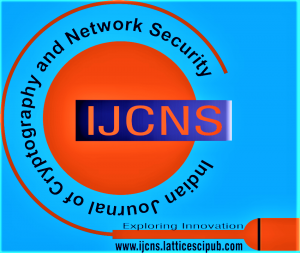![]()
Reliability of Trust Management Systems in Cloud Computing
Pooja Goyal1, Sukhvinder Singh Deora2
1Ms. Pooja Goyal, Assistant Professor, Department of Computer Science & Application, Maharshi Dayanand University, Rohtak (Haryana) India.
2Dr. Sukhvinder Singh Deora, Assistant Professor, Department of Computer Science & Application, Maharshi Dayanand University, Rohtak (Haryana) India.
Manuscript received on 02 April 2022 | Revised Manuscript received on 20 April 2022 | Manuscript Accepted on 15 May 2022 | Manuscript published on 30 May 2022 | PP: 1-5 | Volume-2 Issue-1, May 2022 | Retrieval Number: 100.1/ijcns.C1417051322 | DOI: 10.54105/ijcns.C1417.051322
Open Access | Ethics and Policies | Cite | Mendeley | Indexing and Abstracting
© The Authors. Published by Lattice Science Publication (LSP). This is an open-access article under the CC-BY-NC-ND license (http://creativecommons.org/licenses/by-nc-nd/4.0/)
Abstract: Cloud computing is an innovation that conveys administrations like programming, stage, and framework over the web. This computing structure is wide spread and dynamic, which chips away at the compensation per-utilize model and supports virtualization. Distributed computing is expanding quickly among purchasers and has many organizations that offer types of assistance through the web. It gives an adaptable and on-request administration yet at the same time has different security dangers. Its dynamic nature makes it tweaked according to client and supplier’s necessities, subsequently making it an outstanding benefit of distributed computing. However, then again, this additionally makes trust issues and or issues like security, protection, personality, and legitimacy. In this way, the huge test in the cloud climate is selecting a perfect organization. For this, the trust component assumes a critical part, in view of the assessment of QoS and Feedback rating. Nonetheless, different difficulties are as yet present in the trust the board framework for observing and assessing the QoS. This paper talks about the current obstructions present in the trust framework. The objective of this paper is to audit the available trust models. The issues like insufficient trust between the supplier and client have made issues in information sharing likewise tended to here. Besides, it lays the limits and their enhancements to help specialists who mean to investigate this point.
Keywords: Malicious Users, Subjectivity, Cloud Environment, Service Level Agreement, Reputation System, Quality of Service (QoS), Credibility.
Scope of the Article: Secure Cloud Computing
